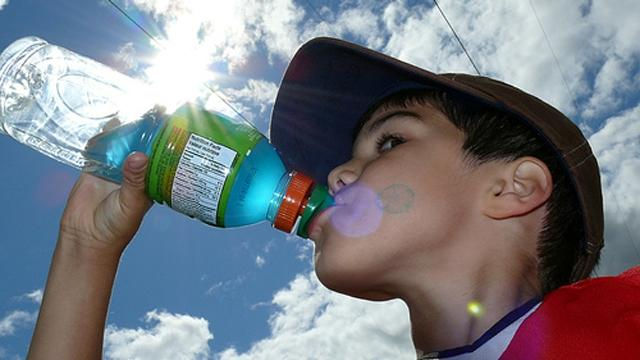The sneaky fat makers - what you need to know about sports drinks!
- Lisa H

- Nov 18, 2015
- 3 min read

We all by now know, that soft drinks are bad for us, but what about a 'healthy' sports drink?
I am standing in the drinks isle of the local supermarket, and I am surrounded by vitamin waters and sports drinks. All flavored, colored, sweetened, pumped with “nutrient enhancement through vitamins,” antioxidants, electrolytes; promises replenishment from my hard sweaty workout, energy, hydration, power, performance or immune protection; and comes in a sexy or techno-looking bottle.
We buy into the image, the association that if we sweat a little we’re an athlete who needs to immediately replenish lost electrolytes.
But what percentage of us are high-performance athletes? Do we really need to guzzle blue Powerade because we just “worked out” in the gym?
The answer is no, we don't.
before the era of sports products, athletes often simply drank water and took salt tablets to replace what they lost through sweat. Sugary foods like fresh fruit are rich in the carbs needed to fuel exercise. (Remember eating orange slices at half time during rugby games as a kid?)
Probably the worst part is our children drink it because it's fashionable and the advertising makes us feel we have made a healthy choice for them. Unfortunately, we couldn't be more wrong... Sports drinks are filled with sugars.

a 2014 study found that New Zealanders over age six consume a whopping 14.1 percent of their calories from added sugars (the World Health Organization recommends keeping that to five percent or less), and the largest source of added sugars (34.4%) came from sodas, energy drinks, and sports drinks.
Sweet Poison
Sugar (sucrose) and high fructose corn syrup contain two molecules: glucose and fructose.
Glucose is absolutely vital to life and is an integral part of our metabolism. Our bodies produce it and we have a constant reservoir of it in the bloodstream.
Every cell in the body can use glucose for energy. If we don’t get glucose from the diet, our bodies produce what we need out of proteins and fats. Fructose, however, is very different. This molecule is not a natural part of metabolism and humans do not produce it.
In fact, very few cells in the body can make use of it except liver cells.
When we eat a lot of sugar, most of the fructose gets metabolized by the liver. There it gets turned into fat, which is then secreted into the blood.
Fructose causes insulin resistance and raises insulin levels in the body, which increases the deposition of fat in the fat cells.
Fructose causes resistance to a hormone called leptin, which makes the brain not “see” that the fat cells are full of fat. This leads to increased food intake and decreased fat burning.
Fructose does not make you feel satiated after meals. It does not lower levels of the hunger hormone ghrelin and it doesn’t reduce blood flow in the centers of the brain that control appetite. This increases overall food intake.
Sugar, with its powerful impact on the reward system, causes addiction in certain individuals. This activates powerful reward-seeking behavior that also increases food intake. So… excess fructose consumption dysregulates short-term energy balance on a meal-to-meal basis AND throws long-term energy balance out of whack.
The more sugar you eat and the longer this process is allowed to continue, the more powerful it becomes. Insulin and leptin resistance increase over time and the reward-seeking behavior becomes stronger.
This way, sugar sets up an extremely powerful biochemical drive to make you eat more, burn less and get fat. Trying to exert willpower over this powerful drive can be next to impossible.
Drinking a Powerade and eating a low carb bar might help you feel sporty as you head to the gym to do 20 minutes on the stair climber, but consider whether or not you actually need them—and what you could possibly eat or drink instead.
Some mixed nuts or fresh fruit do the trick just fine without giving you a blast of sugar.
Water is still the best way to hydrate - especially for our kids.































Comments